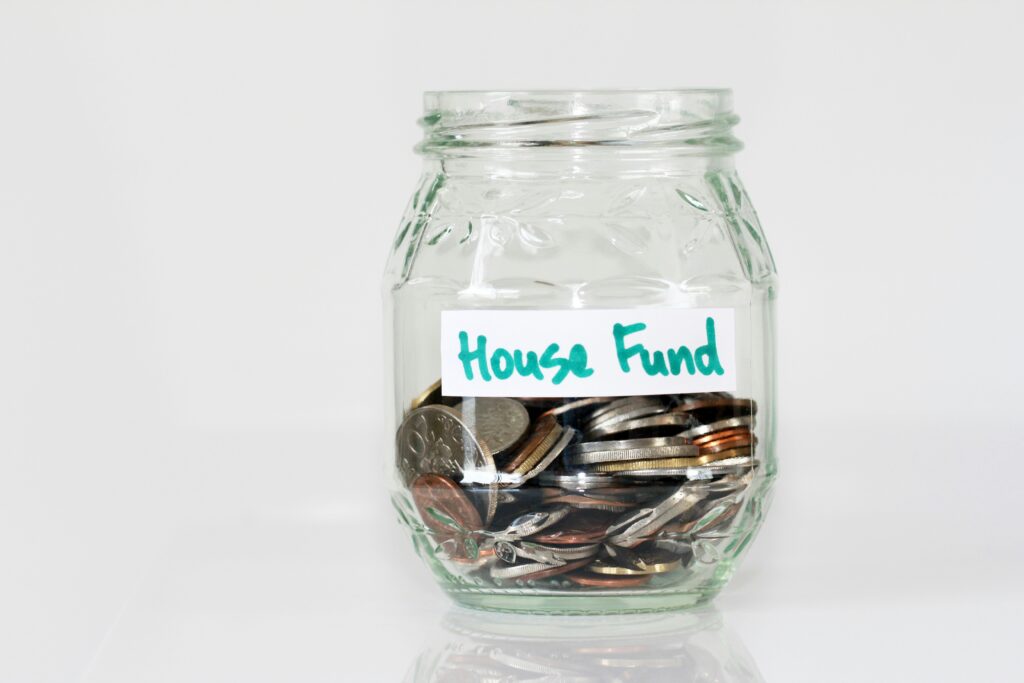Selling a House After Divorce
Navigate divorce and selling a house with our comprehensive guide






Divorce and selling the house
Divorce is a complicated time, full of intense emotions and uncertainty. The process of selling a home you once shared heaps more stress and uncertainty on an already fraught time. Of course, it doesn’t help that the house may hold a lot of shared memories.
The difficult reality is that even once you’ve decided it’s best to go your separate ways, making the decision to sell can stir up difficult feelings – from sadness and anger to relief and hope.
You may be feeling overwhelmed by questions such as:
- How can I make sure the home is divided fairly?
- What’s the quickest way to sell my house?
- What can stop me selling house after divorce?
- What are my options for selling after divorce?
When situations are tough, you need a clear head and a strategic plan, which means you need the facts.
Sell House Fast understands the unique challenges of selling a house after a divorce. We’ve helped hundreds of people navigate this process smoothly and efficiently. It’s this experience that means we’re able to anticipate potential challenges and offer you a solution tailored to your specific needs.
This guide empowers you to make the best decision for your unique situation. We will help you weigh the factors that matter most, such as speed, control and potential for money in your bank. Whatever your priorities — from a fast house sale, to minimal stress, to maximum profits — this guide is packed full of invaluable insights.
Plus, we’ll weigh up the benefits of traditional estate agents, private sales and house buying services. By the end you’ll have a deeper understanding of the advantages and disadvantages of each approach.
So, full steam ahead, to an informed decision that aligns with your specific circumstances and priorities, so you can move forward with your life.
How is a house divided when I sell after divorce?
Much like feelings during a break-up, the answer is ‘it’s complicated’. There are so many factors determining how a house is divided when you sell after divorce. Here, we’ll take a look at the factors that usually play a role in the division decision, as well as how children may impact selling house after divorce.
What influences how a house is split when I sell after divorce?
Property division is often a complex issue, but it’s one that many divorcing couples need to navigate. Your home is a marital asset — for most couples its by far the largest asset they own — and several factors can influence how the proceeds from a house sale are divided:
Financial contributions
As part of the divorce process, property contributions made by each of you will be taken into account. These are contributions such as the purchase and maintenance of the property, including mortgage payments and renovations. While every situation is unique, larger financial contributions may result in a larger share of the sale’s proceeds.
The structure of ownership
The way that the property is owned can affect how the house is divided.
- Joint tenancy: This is where you both own the property together with equal rights and obligations. In this case, each party typically has an equal share.
- Tenancy in common: This is where the house is owned by you as individuals, each in your own party. With a tenancy in common, the shares may be unequal based on the arrangements and on the parties’ contributions.
- Only one of you is on the mortgage/paperwork: If one of you owns the house, it doesn’t mean only one of you will get the proceeds if you sell after divorce. The final division depends on various (rather specific) factors including any children’s needs, financial situations, length of marriage and contributions made by each of you. This is definitely a conversation for your family law solicitor, and something to keep in mind.
Debts and equity
The equity in the home and any remaining mortgage or debts secured against the property will be taken into account. Whatever’s left after settling any debts will then be divided between you and your ex-partner.
Prenuptial agreements
If you drew up a prenuptial or postnuptial agreement, this should outline how assets should be split. The only exception is usually if the court deems them somehow unfair or invalid.
Court orders
Sometimes it’s possible for the two of you (along with help from your solicitors) to come to an agreement on how to divide things. But when it’s not, the decision is made in court instead, and the court will issue a court order. Lots of factors may influence the outcome, such as each spouse’s financial needs, earning capacity and the welfare of any children involved.
Who gets the house in a divorce with children?
The law prioritises children’s welfare in divorces. While growing up with unhappily married parents isn’t great, children are — at least in the shorter term — often negatively affected by their parents divorcing. And rightly, courts aim to prevent them from changing schools or moving home unless it’s absolutely necessary.
To help sidestep the disruption, it’s normal for the parent in the ‘primary carer’ role has the right to remain in the family home with the children. However, both parents usually continue to have a financial stake in the property — meaning ongoing responsibilities, such as mortgage payments. Again, this is a complex area, but the bottom line is that any decision about selling the property will require agreement from both ex-partners.
We see it time and again: Selling the family home can actually provide a fresh start for everyone involved. It allows for independent living arrangements and reduces potential ongoing conflicts.
When can I sell after divorce — and when can’t I?
As you may have already picked up by now, wanting to sell your home as part of a divorce doesn’t automatically mean that you can. There’s finding an agreement with your ex-partner, there’s when to sell, and there are straight-up roadblocks to selling.
We’re about to explore these aspects so that you can go into the process with your eyes open, knowing what to expect and what you might come up against.
Is selling a house before a divorce allowed?
Not only can you, but it’s definitely worth considering. Selling your home before the divorce can create a smoother path to settling your finances. It creates a pot of funds that can be used to pay off debts you hold jointly, to pay legal fees, with the remainder being split to provide a fresh start for both of you.
It’s a common misconception that it’s better to wait until after divorce to sell. But actually there are plenty of reasons to think about selling your home before divorce, the quickest option being to sell your home for cash. More and more couples are opting for this route.
What’s the first step of selling my house in a divorce?
Selling a house during a divorce involves both parties agreeing on how to split the proceeds. You and your ex-spouse need to agree on how to divide the money from the house sale. If you can’t agree, the court will decide for you.
One person can’t decide to sell the house on their own — even if only their name is on the deed or mortgage. Your ex-spouse still has rights to the property. If you both agree on the division of assets, have a solicitor draw up a legal agreement. Both of you must sign it.This makes selling the house straightforward.
Keep in mind that your spouse can refuse to sell the house, even if their name isn’t on the deed or mortgage. You must reach an agreement before proceeding with the sale. If you can’t, you’ll need to seek a court order, and only then can you finalise the sale.
What can stop me selling during divorce?
We’ve touched on it above — your ex-spouse can stop you from selling by not being in agreement with the sale. In such cases, the person who wants to sell may take the matter to court. A judge might agree to sell a property during a divorce even if one party disagrees. This can happen if selling the house is needed for a fair financial settlement, especially if one person needs money for housing or support.
Similarly, if the sale is in the best interest of any children, such as providing a stable home or if the current home is unaffordable, the judge might order the sale. If the person living in the house can’t afford to maintain it, selling might provide a better living situation. To make sure your assets are divided fairly, the judge may rule in favour of selling the property, especially if other assets aren’t enough to balance the split. Selling might also be necessary to cover legal costs.
On the flip side, a judge can issue a Mesher Order. This is a court order that postpones the sale of the home until a specific event, like the youngest child reaching a certain age or finishing school. This helps protect the housing needs of children and the custodial parent. We talked before about how the UK legal system prioritises children’s wellbeing, and a Mesher Order does this by ensuring children can stay in the family home, which helps maintain stability.
Mesher Orders can also delay a sale in the event that one spouse doesn’t have the funds to buy out the other, or if the market conditions are particularly bad. They are usually set to a certain timeframe, after which the property can be sold like normal.
And good news: a Mesher Order can be dropped immediately if down the line you find that you and your partner come to an agreement about selling.
What are my options for sell after divorce?
Traditional estate agent
Auction
Companies that buy houses fast for cash
Final thoughts
Selling your house during a divorce isn’t easy, but knowing how it works and what your options are can make it a bit smoother. The main points to remember are:
- Agreeing on how to split the money.
- Knowing the court might need to step in.
- Understanding the different ways to sell.
And while we’re on that final point, above all else, think about what’s best for you. Going with a traditional estate agent might get you more money, but it can take ages with all the viewings and negotiations. Selling at auction is quick and can be exciting, but you might not get the price you want. Quick house buying services like Sell House Fast are super fast and simple—they give you a cash offer within minutes. No fuss, no frustration.
At Sell House Fast we understand that every divorce is unique. Whatever your situation, we offer a fast, reliable alternative to the viewings, open houses and uncertainty of traditional selling methods. We’re the fast, fair, flexible cash house buyer you can rely on.
If you’re looking to sell after divorce, Sell House Fast can help you turn a challenging time into a fresh start. Reach out now and see how easy it is to get cash for your house.


